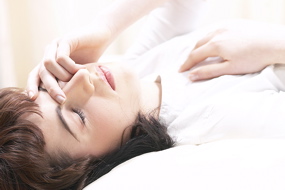Get Rid of Your Sleeping Pills NOW!
| |
The study included 46 participants over the age of 55 who had suffered from insomnia for three months or more. The participants were randomly assigned to receive weekly 50-minute therapy sessions, a drug called xopiclone or a placebo for six weeks. It was found that:
The researchers concluded that cognitive behavioral therapy is more effective than zopiclone for treating chronic insomnia. The therapy included education about lifestyle factors that influence sleep, such as sticking to a sleep schedule, as well as how to correct poor sleep habits and perform relaxation techniques. | |
Journal of the American Medical Association June 28, 2006, Vol. 295, No. 24: 2851-2858 (Registration Required) Forbes.com June 27, 2006 MSNBC June 28, 2006 | |
| Dr. Mercola's Comment: | |
|
Saturday, July 15, 2006
Subscribe to:
Post Comments (Atom)
 Cognitive behavioral therapy for six weeks may treat insomnia better than drugs, according to a study by researchers at the
Cognitive behavioral therapy for six weeks may treat insomnia better than drugs, according to a study by researchers at the
No comments:
Post a Comment